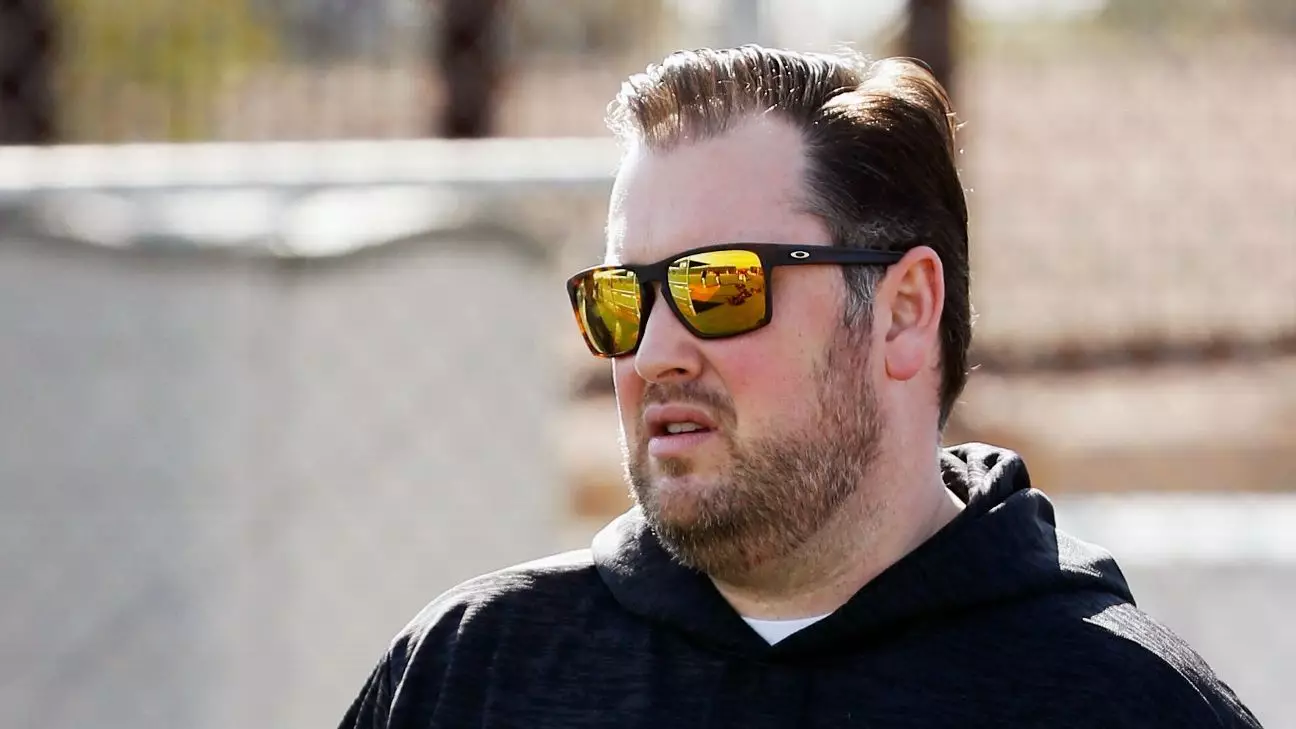In January 2021, Jared Porter, who had recently been appointed as the general manager of the New York Mets, found himself in the eye of a media storm. Just thirty-eight days into his new role, he was unceremoniously dismissed following revelations of inappropriate conduct during his tenure with the Chicago Cubs in 2016. This incident centered on a series of unsolicited, sexually explicit messages he had sent to a female reporter, a breach of both professional and ethical conduct that reverberated throughout the baseball community. The swift firing by the Mets on January 19, coinciding with an ESPN report detailing Ports’ misdeeds, reinforced the urgency of addressing harassment and misconduct in sports—issues that have long lingered beneath the surface.
Porter’s acknowledgment of his actions has since been a focal point in discussions about accountability, particularly in fields like professional sports where male-dominated environments can perpetuate systemic issues. Taking a step to confront the darkness of the past rather than hide from it signifies a critical shift in how individuals in positions of power interact with their peers and subordinates.
During a recent episode of the “Baseball Isn’t Boring” podcast, Porter expressed deep feelings of fear and shame as he reflected on his actions and their consequences. Acknowledging the pain inflicted not just on the reporter but also on his family and colleagues, he finally grasped the weight of responsibility he bore. “It was an inappropriate relationship for a lot of reasons,” he said, illustrating that he came to terms with his action’s gravity. Crafting an honest narrative of regret requires not only personal introspection but also a public admission of guilt that can be difficult for many to face.
The process of accountability includes navigating complex emotional terrains. Porter’s recounting of the situation underscored how essential it is for individuals to reach out for support in dire times. The catalyst that ultimately led him down the path of seeking help was a message from Ken Kendrick, the managing general partner of the Arizona Diamondbacks. This interaction proved instrumental as it facilitated Porter’s connection with critical mental health resources, including a regimen of inpatient and outpatient treatment focused on addressing emotional trauma and behavioral issues.
Porter’s time at The Meadows, a treatment center in Arizona, marked a watershed moment in his personal journey. His experience there starkly contrasted the exhilarating highs of his previous role—trading for superstar Francisco Lindor—with the sobering reality of confronting his inner demons. “I literally went from trading for Francisco Lindor to being at an inpatient mental health institute,” he recalled. Such drastic shifts in circumstance often serve as poignant reminders that personal growth often necessitates facing uncomfortable truths about oneself and one’s failures.
Through weeks of treatment and therapy, Porter grappled with notions of boundaries and emotional walls that had previously limited his ability to connect genuinely with others. His frank discussion about these issues serves as another reminder of the pervasive stigma surrounding mental health in sports—a conversation that could support a culture of dialogue and healing rather than silence and shame.
Emerging from treatment, Porter took significant steps to redefine his purpose. He founded Blend, a company focused on equipping young athletes with essential mental health skills. His transition from participant to mentor exemplifies how individuals can transform personal failures into a platform for change. By contributing to the mental health discourse among youth and professional athletes, Porter hopes to pave the way for more inclusive and supportive environments where openness about struggles is encouraged rather than shunned.
Porter’s journey demonstrates that while the path to recovery is often fraught with challenges, it can also lead to meaningful contributions to societal issues. By sharing his story, he serves as a beacon for others, illustrating that accountability, growth, and resilience are not only essential in the aftermath of personal crises but crucial in building a healthier future—both personally and collectively within the sports community.
Jared Porter’s narrative serves as a sobering reminder of accountability in the realm of sports. The decisions that led to his downfall opened the door for growth—not just for him but also for the broader dialogue regarding compassion, boundaries, and the mental health of everyone involved in the competitive landscape. His ongoing work with Blend signals a commitment to using his experience positively, potentially impacting many lives for the better.

